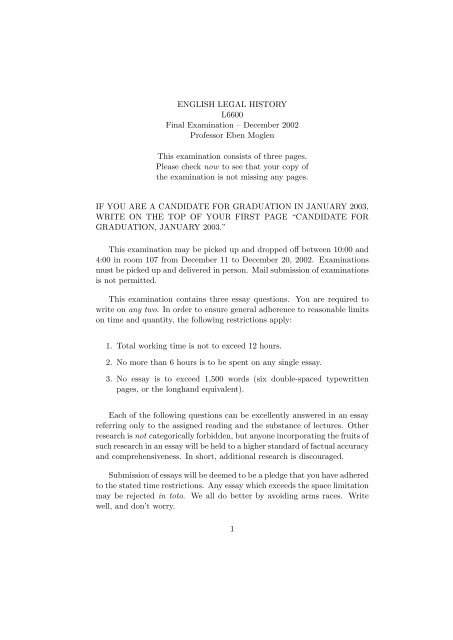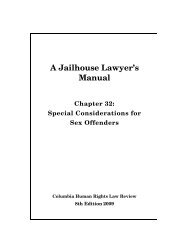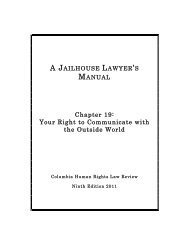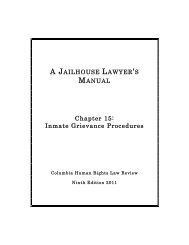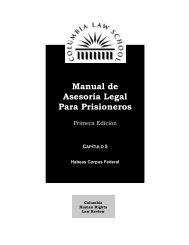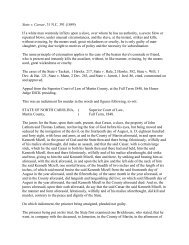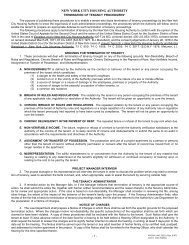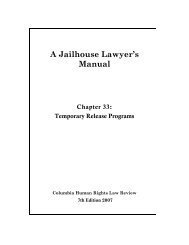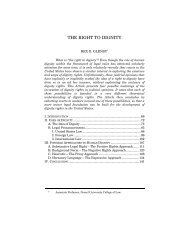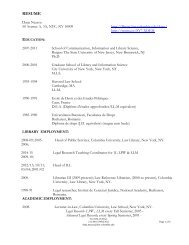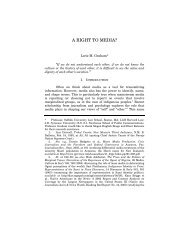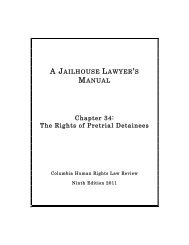ENGLISH LEGAL HISTORY L6600 Final Examination - Eben Moglen
ENGLISH LEGAL HISTORY L6600 Final Examination - Eben Moglen
ENGLISH LEGAL HISTORY L6600 Final Examination - Eben Moglen
You also want an ePaper? Increase the reach of your titles
YUMPU automatically turns print PDFs into web optimized ePapers that Google loves.
<strong>ENGLISH</strong> <strong>LEGAL</strong> <strong>HISTORY</strong><strong>L6600</strong><strong>Final</strong> <strong>Examination</strong> – December 2002Professor <strong>Eben</strong> <strong>Moglen</strong>This examination consists of three pages.Please check now to see that your copy ofthe examination is not missing any pages.IF YOU ARE A CANDIDATE FOR GRADUATION IN JANUARY 2003,WRITE ON THE TOP OF YOUR FIRST PAGE “CANDIDATE FORGRADUATION, JANUARY 2003.”This examination may be picked up and dropped off between 10:00 and4:00 in room 107 from December 11 to December 20, 2002. <strong>Examination</strong>smust be picked up and delivered in person. Mail submission of examinationsis not permitted.This examination contains three essay questions. You are required towrite on any two. In order to ensure general adherence to reasonable limitson time and quantity, the following restrictions apply:1. Total working time is not to exceed 12 hours.2. No more than 6 hours is to be spent on any single essay.3. No essay is to exceed 1,500 words (six double-spaced typewrittenpages, or the longhand equivalent).Each of the following questions can be excellently answered in an essayreferring only to the assigned reading and the substance of lectures. Otherresearch is not categorically forbidden, but anyone incorporating the fruits ofsuch research in an essay will be held to a higher standard of factual accuracyand comprehensiveness. In short, additional research is discouraged.Submission of essays will be deemed to be a pledge that you have adheredto the stated time restrictions. Any essay which exceeds the space limitationmay be rejected in toto. We all do better by avoiding arms races. Writewell, and don’t worry.1
Question IThe life of the common law has been in the abuse of its elementaryideas. If the rules of property give what now seems anunjust answer, try obligation; and equity has proved that fromthe materials of obligation you can counterfeit the phenomena ofproperty. If the rules of contract give what now seems an unjustanswer, try tort. ... If the rules of one tort, say deceit, give whatnow seems an unjust answer, try another, try negligence. Andso the legal world goes round.Please discuss, with specific reference to the development of one or moreaspects of trespass on the case.Question IIThe miserable history of crime in England can be shortly told.Nothing worth-while was created. ... So far as justice was donethroughout the centuries it was done by jurors and in spite ofsavage laws. The lawyers contributed humane but shabby expedients,which did not develop into new approaches. ... The kindof discussion by which law develops as an intellectual system is aluxury in the context of preserving elementary order. In murderand theft there are no competing general interests to accommodate.It is the constable and the hangman who can do somethingabout them, not the lawyer. Until relatively modern times thelawyer was not even allowed to play any real part; and if he hadbeen, few defendants could have paid him. The criminal lawbecame segregated as one of the dirty businesses of society. Itcannot even be called a failure of the common law because, untilthe age of reform, it was nobody’s business to try.Comment.2
“Procedure creates substance.”Question IIIExplain, with specific examples from the law of real property, the extentand limits of this principle in the historical development of Englishsubstantive doctrine.END OF EXAMINATION3


